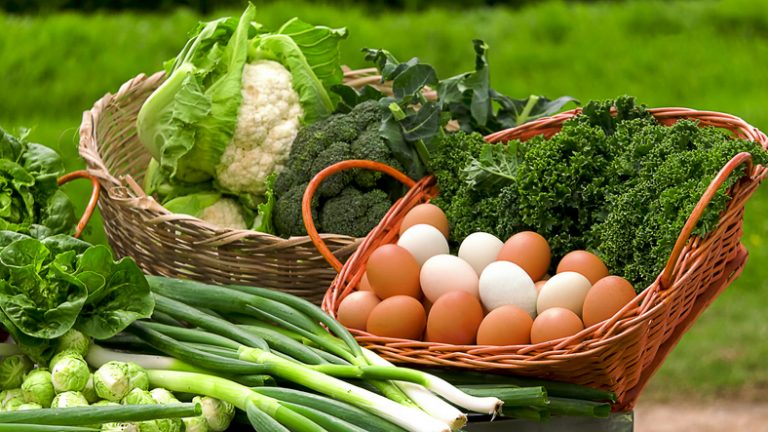Best 10 Foods to Boost Metabolism
Are you are looking to lose weight and increase energy? Read on ……

Metabolism is the rate at which the body burns calories and carries out other essential processes.
Certain foods contain specific nutrients that increase the body’s metabolism and by boosting your metabolic rate, you may be able to shed excess weight and reduce the risk of obesity and related health issues.
Ten of the best metabolism boosting foods
1. Eggs are rich in protein and protein-rich foods are amongst the best options for boosting metabolism.
Protein is one of the most effective nutrients because the body needs to use more energy to digest it than it does for fats or carbohydrates.
According to some research, those who consumed 29% of their total daily calories as protein had a higher metabolic rate than those who consumed 11% of total calories from protein.
A single large hard-boiled egg contains 6.29 grams of protein, making them an ideal choice for speeding up metabolism.
2. Flaxseeds are seeds that contain protein, vitamins, and other key nutrients.
Eating them could help boost metabolism and improve metabolic syndrome – a group of conditions that contribute to diabetes, obesity, and cardiovascular disease.
It seems flaxseeds may boost metabolism because they contain good amounts of fibre and protein, along with essential omega-3 fats, antioxidants, and other essential nutrients.
The fibre in flaxseeds ferments in the gut to improve the gut’s bacterial profile. This aids metabolic health, and it may protect against obesity.
Studies suggest that flaxseeds and their nutrients may also help treat or protect against arthritis, autoimmune diseases, cancer, cardiovascular disease, diabetes, neurological disorders and osteoporosis.
3. Lentils are another food that may reduce the effects of metabolic syndrome.
Eating lentils and other legumes, such as beans and peas, can play a central role in preventing and treating metabolic syndrome.
They may also increase metabolism because they are rich in protein and also contain good amounts of fibre to feed beneficial bacteria in the gut.
4. Chilli peppers contain a compound called capsaicin which studies suggest can boost metabolic rate and help weight loss by encouraging a feeling of fullness.
Research also suggests that the compound can contribute to weight management in other ways by increasing the speed at which the body burns fat and reducing appetite.
An early study, published in 2012, indicated that capsaicin helps the body to burn approximately 50 extra calories each day.
It may also reduce pain and inflammation, act as an anticancer agent, and provide antioxidant benefits so some researchers suggest that the compound may help treat conditions such as rheumatoid arthritis.
5. Ginger increases body temperature and metabolic rate, and helps control appetite.
A 2018 review of studies found that it may help to reduce body weight and fasting glucose levels while increasing high-density lipoprotein (HDL), or “good” cholesterol.
Ginger also has anti-inflammatory properties, and so may help to reduce nausea during pregnancy and after chemotherapy treatment. It is also good for motion sickness, which I can vouch for as I always take some with me when travelling.
6. Green tea has received plenty of attention in recent years as researchers have shed light on its potential health benefits.
Several studies suggest that green tea extract (GTE) may increase fat metabolism both at rest and during exercise. However, other research reports no notable effects.
Green tea contains caffeine and a type of flavonoid called catechin, which is an antioxidant. Research suggests that both of these compounds can speed up metabolism.
Catechin can help to break down excess fat, while both catechin and caffeine can increase the amount of energy the body uses. The enzyme inhibition qualities of green tea may also regulate nutrient absorption of carbohydrates and curb appetite.
Various studies have shown that green tea may reduce belly fat and help you lose weight and that would mean drinking around 4 cups a day.
Other proposed health benefits of green tea include anti-inflammatory effects, antioxidant properties, antimicrobial activity, anticancer effects and benefits for heart and oral health.
7. Coffee can stimulate metabolism thanks to its caffeine content.
Research reports that caffeine intake has a stimulating effect on energy expenditure and can lead to increased metabolism. However, too much caffeine is definitely not helpful so limit consumption.
Decaffeinated coffee does not have the same metabolism boosting benefits. Also, adding milk or sugar will increase its calorie content, which may work against those beneficial effects.
8. Brazil nuts are one of the richest sources of selenium, a mineral that is essential for metabolism, reproduction, and immune function. They also contain protein and good fats to make you feel fuller.
Selenium is especially important for the thyroid gland, a gland that regulates metabolic function and produces several vital hormones.
A Brazil nut provides 68 to 91 micrograms of selenium, which is more than the recommended dietary allowance (RDA) of 55 mcg per day.
Avoid eating too many as this can cause selenium toxicity and the recommended upper limit of selenium intake at 400 mcg.
Research also suggests that Brazil nuts can improve the cholesterol levels of healthy people. Abnormal cholesterol levels are a marker of metabolic syndrome.
9. Broccoli may benefit metabolism because it contains a substance called glucoraphanin.
Glucoraphanin helps to “retune” metabolism, lower blood fat levels, and reduce the risk of many age-related diseases.
Broccoli and other cruciferous vegetables are an essential part of a healthy diet to reduce risk for certain diseases and conditions.
10. Dark, leafy green vegetables contain iron, which is essential for metabolism.
Spinach, kale, and other leafy green vegetables have good iron content and it is an essential mineral for metabolism, growth, and development.
To increase the body’s absorption of this type of non-animal iron eat them with a source of vitamin C — such as lemon or tomatoes.
Many leafy greens also provide good amounts of magnesium, another mineral that supports metabolic function and plays a role in over 300 processes in the body.
Other key factors
Fluid intake is also critical and according to one small-scale study, drinking enough water daily can decrease body weight and BMI in some who are overweight.
Getting enough sleep is essential for metabolism and overall health as a lack of sleep may be contributing to the trend of increasing obesity and diabetes, which are consequences of metabolic syndrome.
Strength and resistance training may not sound like your thing but lifting weights regularly allows you to gain and retain muscle mass and to burn fat.
A 2018 study on sedentary women found that resistance training increased the overall basal metabolic rate (BMR) for up to 48 hours. BMR refers to the number of calories that the body burns while resting.
Helpful information
You can see that a slow metabolic rate impacts your energy, and leads to some increase round the waist and at menopause that is sadly all too common.
Check your hormone balance too if you are oestrogen dominant, where your oestrogen levels are much higher than your progesterone levels, then that will impact your weight particularly around the where oestrogen continues to be made and stored at Menopause.
Still need more ways to boost your energy? This article has plenty of tips from leading nutritionist Patrick Holford which will help you.
https://anna.blog.wellsprings-health.com/seven-energy-secrets-you-need-to-know/



















